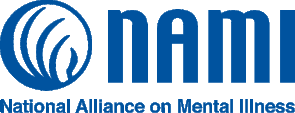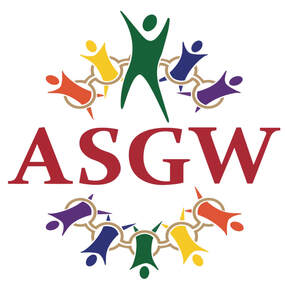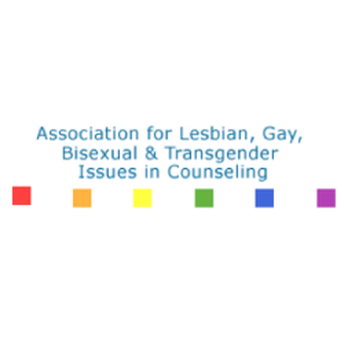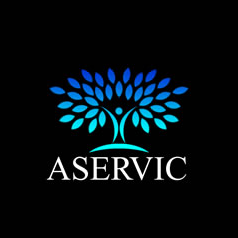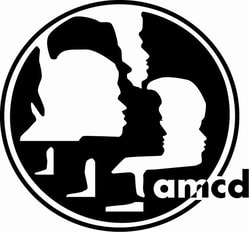resource Library. |
Looking for a Therapist Who Shares A
Similar Background & Identity To You?
Visit the Directory of Clinicians of Color and Other Minoritized Identities !
Representation in treatment is essential. Explore various directory services to find a therapist who shares your racial background, gender or sexual identity, and religious beliefs, created by the Counselors for Social Justice Advocacy Committee.
Representation in treatment is essential. Explore various directory services to find a therapist who shares your racial background, gender or sexual identity, and religious beliefs, created by the Counselors for Social Justice Advocacy Committee.
SOCIAL JUSTICE COUNSELING RESOURCES
Understanding Child Abuse
Intimate Partner Violence (IPV) Between Same-Sex Couples
Abuse in the United States Military
Social Justice-Related Competencies
Counseling with Transgender Clients
Addressing Spiritual and Religious Issues in Counseling
Multicultural Career Counseling and Development
Multicultural Guidelines
Since the initial version of the Guidelines on Multicultural Education, Training, Research, Practice, and Organizational Change for Psychologists (APA, 2002) was released, there has been significant growth in research and theory regarding multicultural contexts. The guidelines were passed by the American Psychological Association (APA) Council of Representatives at the 2002 annual conference and were posted on the APA website. The attention given to these guidelines, including their publication in the American Psychologist (2003), speaks to the profession’s recognition of the important role that diversity and multiculturalism plays, both in terms of how individuals and groups define themselves, and how they approach others within the United States and globally (APA, 2002).
These current Multicultural Guidelines: An Ecological Approach to Context, Identity, and Intersectionality, 2017 (PDF, 1MB) (i.e., Multicultural Guidelines) are conceptualized from a need to reconsider diversity and multicultural practice within professional psychology at a different period in time, with intersectionality as its primary purview. The 2017 version of the Multicultural Guidelines encourages psychologists to consider how knowledge and understanding of identity develops from and is disseminated within professional psychological practice. Endemic to this understanding is an approach that incorporates developmental and contextual antecedents of identity and how they can be acknowledged, addressed and embraced to engender more effective models of professional engagement. The 2017Multicultural Guidelines incorporate broad reference group identities (e.g., Black/African American/Black American, White/White American, and Asian/Asian American/Pacific Islander) to acknowledge within-group differences and the role of self-definition in identity.
With the 2017 Multicultural Guidelines, APA and its members are presented with an opportunity to participate directly, as professional psychologists, in engaging a fuller understanding of diversity and its considerations within practice, research, consultation and education (including supervision) to directly address how development unfolds across time and intersectional experiences and identities; and to recognize the highly diverse nature of individuals and communities in their defining characteristics, despite also sharing many similarities by virtue of being human. Our conscious awareness of what it means to think, feel, regulate, behave and create meaning has been enhanced by advances in research and clinical scholarship affording us a contemporary consideration of psychology that incorporates human differences across their varied elements.
These current Multicultural Guidelines: An Ecological Approach to Context, Identity, and Intersectionality, 2017 (PDF, 1MB) (i.e., Multicultural Guidelines) are conceptualized from a need to reconsider diversity and multicultural practice within professional psychology at a different period in time, with intersectionality as its primary purview. The 2017 version of the Multicultural Guidelines encourages psychologists to consider how knowledge and understanding of identity develops from and is disseminated within professional psychological practice. Endemic to this understanding is an approach that incorporates developmental and contextual antecedents of identity and how they can be acknowledged, addressed and embraced to engender more effective models of professional engagement. The 2017Multicultural Guidelines incorporate broad reference group identities (e.g., Black/African American/Black American, White/White American, and Asian/Asian American/Pacific Islander) to acknowledge within-group differences and the role of self-definition in identity.
With the 2017 Multicultural Guidelines, APA and its members are presented with an opportunity to participate directly, as professional psychologists, in engaging a fuller understanding of diversity and its considerations within practice, research, consultation and education (including supervision) to directly address how development unfolds across time and intersectional experiences and identities; and to recognize the highly diverse nature of individuals and communities in their defining characteristics, despite also sharing many similarities by virtue of being human. Our conscious awareness of what it means to think, feel, regulate, behave and create meaning has been enhanced by advances in research and clinical scholarship affording us a contemporary consideration of psychology that incorporates human differences across their varied elements.
ACA Advocacy Competencies
Population-Specific Research
AFRICAN-AMERICAN
- Buhin, L., Vera, E. M. (2009) Preventing Racism and Promoting Social Justice: Person-Centered and Environment-Centered Interventions Journal of Primary Prevention 30(1), 43-59
- Dollarhide, C. T., Bowen, N., Baker, C., Kassoy, F., Mayes, R., & Baughman, A. (2014). Exploring the work experiences of school counselors of color. Professional School Counseling, 17, 52-62.
- Graham, J. R., West, L. M., Martinez, J., & Roemer, L. (2016). The mediating role of internalized racism in the relationship between racist experiences and anxiety symptoms in a Black American sample. Cultural Diversity and Ethnic Minority Psychology, 22(3), 369-376. http://dx.doi.org/10.1037/cdp0000073
- Greer, T. M., & Spalding, A. (2017). The role of age in understanding the psychological effects of racism for African Americans. Cultural Diversity and Ethnic Minority Psychology, 23(4), 588-594. http://dx.doi.org/10.1037/cdp0000148
- Jetelina, K. K., Jennings, W. G., Bishopp, S. A., Piquero, A. R., & Gonzalez, J. R. (2017). Dissecting the complexities of the relationship between police officer-civilian race/ethnicity dyads and less-than-lethal use of force. American Journal Of Public Health, 107(7), 1164-1170.
- Lewis, J. A., Williams, M. G., Peppers, E. J., & Gadson, C. A. (2017). Applying intersectionality to explore the relations between gendered racism and health among Black women. Journal of Counseling Psychology, 64(5), 475-486.
LATINA/O
- Cook, A. L., Hayden, L. A., Bryan, J., & Belford, P. (2016). Implementation of a school-family-community partnership model to promote Latina youth development: Reflections on the process and lessons learned. International Journal for Research on Service-Learning and Community Engagement, 4, 1-17.
- Baumann, A., Domenech RodrÍGuez, M., & Parra-Cardona, J. R. (2011). Community-Based Applied Research With Latino Immigrant Families: Informing Practice and Research According to Ethical and Social Justice Principles. Family Process, 50(2), 132-148. doi:10.1111/j.1545-5300.2011.01351.x
IMMIGRATION
- Hunt, J. (2017). The impact of immigration on the educational attainment of Natives. Journal Of Human Resources, 52(4), 1060-1118. doi:10.3368/jhr.52.4.0115-6913R1
- Parmet, W., & Fischer, S. (2013). Human rights and immigrants’ access to care. Salud Publica De Mexico, 55(6), 631-637.
- Reed, J. (2015). Immigrants as Refugees of the Global Economy: Learning to Teach (about) Today’s Migrants. Multicultural Education, 22(3-4), 2-7.
- Salas, R.G. (2017). Disrupting Equilibrium: Working for Equity and Social Justice in Education for English Learners. International Journal Of Multicultural Education, 19(1), 1-18
- Shoshana, A. (2016). The language of everyday racism and microaggression in the workplace: Palestinian professionals in Israel. Ethnic And Racial Studies, 39(6), 1052-1069. doi:10.1080/01419870.2015.1081965
LGBTI
- Alex Wagaman, M. (2016). Promoting empowerment among LGBTQ youth: A social justice youth development approach. Child & Adolescent Social Work Journal, 33(5), 395-405. doi:10.1007/s10560-016-0435-7
- Bidell, M. P. (2011). School counselors and social justice advocacy for lesbian, gay, bisexual, transgender, and questioning students. Journal Of School Counseling, 9(10),
- Cooper, J., Dollarhide, C. T., Radliffe, K., & Gibbs, T. (2014). No lone wolf: A multidisciplinary approach to creating safe schools for LGBTQ youth through the development of allies. Journal of LGBT Issues in Counseling, Special Issue, 8(4), 344-360. doi: 10.1080/15538605.2014.960128
- Reed, L., & Johnson, L. T. (2010). Serving LGBT students: Examining the spiritual, religious, and social justice implications for an African American school administrator. Journal Of Negro Education, 79(3), 390-404.
- Simons, J. D., Hutchison, B., & Bahr, M. (2017). School counselor advocacy for lesbian, gay, and bisexual students: Intentions and Practice. Professional School Counseling, 20(1a), 29-37.
TRANSGENDER
- Lerner, J. E.; Robles, G. (2016). The need for social work advocacy to create social justice for transgender people: call to action. Journal of Sociology Social Welfare 43(1), 3-18.
- Neufeld, A. C. (2014). Transgender therapy, social justice, and the northern context: Challenges and opportunities. Canadian Journal Of Counselling And Psychotherapy, 48(3), 218-230.
- Rands, K. (2013). Supporting transgender and gender-nonconforming youth through teaching mathematics for social justice. Journal Of LGBT Youth, 10(1/2), 106-126. doi:10.1080/19361653.2012.717813
- Shelley, C. A. (2009). Trans people and social justice. The Journal of Individual Psychology, 65(4), 386-396.
DISABILITy
- Byrne, B., & Kelly, B. (2015). Special issue: Valuing disabled children: Participation and inclusion. Child Care In Practice, 21(3), 197-200. doi:10.1080/13575279.2015.1051732
- Gooding, P., Mcsherry, B., Arstein-Kerslake, A., & Andrews, L. (2017). Unfitness to stand trial and the indefinite detention of persons with cognitive disabilities in Australia: Human rights challenges and proposals for change. Melbourne University Law Review, 40(3), 816-866.
- McNeilly, P., Macdonald, G., & Kelly, B. (2015). The participation of disabled children and young people: A social justice perspective. Child Care In Practice, 21(3), 266-286. doi:10.1080/13575279.2015.1014468
- Mladenov, T., Owens, J., & Cribb, A. (2015). Personalisation in disability services and healthcare: A critical comparative analysis. Critical Social Policy, 35(3), 307-326. doi:10.1177/0261018315587071
- Mor, S. (2017). Rights Enabled: The Disability Revolution from the US, to Germany and Japan, to the United Nations. Law & Society Review, 51(2), 454-457. doi:10.1111/lasr.12271
INCARCERATION
- Allen, K. R., & Bradley, L. (2015). Career counseling with juvenile offenders: Effects on self-efficacy and career maturity. Journal of Addictions & Offender Counseling, 36(1), 28-42.
- Bradshaw, C. P., Brown, J. S., & Hamilton, S. F. (2006). Applying positive youth development and life-course research to the treatment of adolescents involved with the judicial system. Journal of Addictions & Offender Counseling, 27(1), 2-16.
- Graham, J. A., & Harris, Y. R. (2013). Children of color and parental incarceration: Implications for research, theory, and practice. Journal of Multicultural Counseling and Development, 41(2), 66-81.
- Johnson, K. F. (2013). Preparing ex-offenders for work: applying the self-determination theory to social cognitive career counseling. Journal of Employment Counseling, 50(2), 83-93.
- Laux, J., Calmes, S., Moe, J., Dupuy, P., Cox, J., Ventura, L., Williamson, C., & Lambert, E. (2011). The clinical mental health counseling needs of mothers in the criminal justice system. The Family Journal, 19(3), 291-298.
- Lopez, C., & Bhat, C. (2007). Supporting students with incarcerated parents in schools: a group intervention. Journal For Specialists In Group Work, 32(2), 139-206.
- Murray, J. (2014). Effects of parental incarceration on children: Cross-national comparative studies. Washington, D.C: American Psychological Association.
- Petsch, P., & Rochlen, A. B. (2010). Children of incarcerated parents: Implications for school counselors. Journal of School Counseling, 7(40).
- Thompson, M. N., & Cummings, D. L. (2010). Enhancing the career development of individuals who have criminal records. The Career Development Quarterly, 58(3), 209-218.
sOCIAL jUSTICE RESEARCH
sOCIAL jUSTICE IN sCHOOL cOUNSELING
- Cook, A. L., Shah, A., Brodsky, L., & Morizio, L. J. (in press). Building effective school-family-community partnerships through community dialogues. Journal for Social Action in Counseling and Psychology.
- Cook, A. L., & Krueger-Henney, P. (2017). Group work that examines systems of power with young people: Youth participatory action research. Journal for Specialists in Group Work, 2, 1-18. doi:10.1080/01933922.2017.1282570?
THE PRACTICE OF SOCIAL JUSTICE
- Gonzalez, L. M., Fickling, M. J., Gray, C. N., Ong, I., & Waalkes, P. (in press). Learning to advocate: Evaluating a new course. Journal of Counselor Leadership & Advocacy.
- Fickling, M. J., Lancaster, C., & Neal, A. V. (in press). Social justice in career services: Perspectives from career center directors. The Career Development Quarterly.
- Fickling, M. J. (2016). An exploration of career counselors’ perspectives on advocacy. The Professional Counselor, 6, 174-188. doi:10.15241/mf.6.2.174
- Fickling, M. J., & Gonzalez, L. M. (2016). Linking multicultural counseling and social justice through advocacy. Journal of Counselor Leadership and Advocacy, 3, 85-94. doi:10.1080/2326716X.2015.1124814
TEACHING SOCIAL JUSTICE
- Brown, K. D., Brown, A. L. (2011). Teaching K-8 Students about Race: African Americans, Racism, & the Struggle for Social Justice in the U.S..Multicultural Education
- Bell, E.L. (1989). Racial and Ethnic Diversity: the Void in Organizational Behavior Courses. Journal of Management Education, 13(4), 56-67.
- Cook, A. L., Krell, M., Hayden, L. A., Gracia, R., & Denitzio, K. (2016). Fieldwork using professional development schools model: Developing social justice advocacy. Journal of Multicultural and Counseling Development, 44, 176-188. doi:10.1002/jmcd.12045
- Cook, A. L., Hayden, L. A., Gracia, R., & Tyrrell, R. (2015). Exploring outcomes of a targeted supervisory training curriculum on developing multicultural competency and social justice advocacy. Counseling Outcome Research and Evaluation, 6, 126-140. doi:10.1177/2150137815594201
- DeMatthews, D. (2015). Making Sense of Social Justice Leadership: A Case Study of a Principal’s Experiences to Create a More Inclusive School. Leadership And Policy In Schools, 14(2), 139-166.
- Lund, D. E., & Nabavi, M. (2008). Understanding Student Anti-Racism Activism to Foster Social Justice in Schools. International Journal of Multicultural Education, 10(1), 1-20
- Mayes, R. D., Dollarhide, C.T., Marshall, B.T., & Rae, A. M. (2016). Affective and developmental transitions: Qualitative themes in multicultural counseling journals. International Journal of Information and Learning Technology, 33(1), 2-16. doi:10.1108/IJILT-10-2015-0031
- McMahon, B.(2007) Educational Administrators’ Conceptions of Whiteness, Anti-Racism and Social Justice Journal of Educational Administration, 684-696
- Nittoli, J. M., & Guiffrida, D. A. (2017). Using popular film to teach multicultural counseling: A constructivist approach. Journal of Creativity in Mental Health, , 1-14. doi:10.1080/15401383.2017.1340216
SOCIAL JUSTICE IN COUNSELOR EDUCATION
- Dollarhide, C. T., Mayes, R. M., Dogan, S., Aras, Y., Edwards, K. E., Oehrtman, J. P., & Clevenger, A. (in press). Social justice and resilience for African American male counselor educators: A phenomenological study. Counselor Education and Supervision.
SOCIAL JUSTICE IDENTITY DEVELOPMENT
- Dollarhide, C. T., Clevenger, A., Dogan, S., & Edwards, K. (2016). Social justice identity: A phenomenological study. Journal of Humanistic Psychology, 56(6) 624–645. doi: 10.1177/0022167816653639
- Swartz, M., Limberg, D., Gold J. (in press). How exemplar counselor advocates develop social justice interest: A qualitative investigation. Journal of Counselor Education and Supervision, 57(1).
oRGANIZATIONS
RACE AND ETHNICITY
- Kirwan Institute for the Study of Race and Ethnicity: Kirwan Institute for the Study of Race and Ethnicity’s goal is to connect individuals and communities with opportunities needed for thriving by educating the public, building the capacity of allied social justice organizations, and investing in efforts that support equity and inclusion.
- National Urban League: The National Urban League is a historic civil rights organization dedicated to economic empowerment in order to elevate the standard of living in historically underserved urban communities. Founded in 1910 and headquartered in New York City, the National Urban League spearheads the efforts of its local affiliates through the development of programs, public policy research and advocacy. Today, the National Urban League has 88 affiliates serving 300 communities, in 36 states and the District of Columbia, providing direct services that impact and improve the lives of more than 2 million people nationwide.
IMMIGRATION
- CRIS: Community Refugee & Immigration Services (CRIS) is an independent non-profit organization that serves the growing refugee and immigrant populations in Central Ohio. We have over 60 staff members that hail from more than 15 countries with many languages represented.
- DreamActivist Ohio: We are a group of Undocumented Immigrant Youth fighting for our (yours and mine) collective dignity. We will no longer tolerate the oppression our communities are facing and ask you to join us in our struggle. We hope to build, a more faithful and loving environment in which all are welcomed & respected. We believe that art is an invaluable tool in this regard as it often illuminates the gaps superficial realities overlook.
- US Together: US Together Inc., (UST) was founded in 2003 in response to the growing needs of refugees and immigrants in central Ohio. UST is a mutual assistance agency, which means it was started and is still run by former refugees. The agency’s founders have worked with immigrant and refugee populations since 1988.
LGBTQIA+
- ALGBITC Ohio: Branch Association for Lesbian, Gay, Bisexual, & Transgender Issues in Counseling of Ohio
- Equality Ohio: Advocates and educates to achieve fair treatment and equal opportunity for all Ohioans regardless of their sexual orientation or gender identity or expression
- Kaleidoscope Youth Center: Creates safe and empowering environments for lesbian, gay, bisexual, transgender and questioning youth through advocacy, education and support.
- PFLAG: Parents, Families Friends of Lesbians and Gays Promotes the health and well-being of lesbian, gay, bisexual and transgender persons, their families and friends through: support, to cope with an adverse society; education, to enlighten an ill-informed public; and advocacy, to end discrimination.
- The Gay, Lesbian and Straight Education Network (GLSEN)
- The National Black Justice Coalition (NBJC) civil rights organization dedicated to the empowerment of Black lesbian, gay, bisexual, transgender, and queer people
eDUCATION
- The Education Trust: The Education Trust is a national non-profit advocacy organization that promotes high academic achievement for all students at all levels, particularly for students of color and low-income students.
INCARCERATION
Other
- Joint Center for Political and Economic Studies: The Joint Center for Political and Economic Studies is a nonprofit public policy organization that produces innovative, high-impact ideas, research, and policy solutions that have a positive impact on people and communities of color. The Joint Center does this by building and fueling a nonpartisan network of innovative elected and appointed officials of color and scholars for whom this goal is a priority. The Joint Center uses policy round tables, research reports, and targeted media to reach key audiences of innovative officials of color and other thought leaders
- The American Civil Liberties Union of Ohio
BOOKS AND ONLINE RESOURCES
Books
- Ahmed, S. (2012). On being included: Racism and diversity in institutional life. London, UK: DukeUniversity Press. ISBN: 978-0-8223-5236-5
- Alexander, M. (2012). The new Jim Crow: Mass incarceration in the age of colorblindness (rev. ed.). New York, NY: The New Press. ISBN: 978-1-59558-643-8
- Banaji, M. R., & Greenwald, A. G. (2013). Blind spot: Hidden biases of good people. New York, NY: Delecorte. ISBN: 978-0-553-80464-5
- Degado, R. & Stefancic, J. (2012). Critical race theory: An introduction (2nd ed.). New York, NY: New York University Press. ISBN: 978-0-8147-2135-3
- Dunbar-Ortiz, R. & Gilio-Whitaker, D. (2016). “All the real Indians died off”: And 20 other myths about Native Americans. Boston, MA: Beacon Press. ISBN: 978-0-8070-6265-4.
- Freire, P. (2009). Pedagogy of the oppressed. New York, NY: Continuum. ISBN: 0-8264-1276-9
- hooks, b. (1994). Teaching to transgress: Education as the practice of freedom. New York, NY: Routledge. ISBN: 0-415-90808-6
- Irving, D. (2014). Waking up White and finding myself in the story of race. Cambridge, MA:
- Elephant Room Press. ISBN: 978-0-9913313-0-7
- Johnson, A. G. (2006). Privilege, power, and difference (2nd ed.). Boston, MA: McGraw Hill. ISBN -13: 978-0-07-287489-1 ISBN-10: 0-07-287489-9
- Monk, G., Winslade, J., & Sinclair, S. (2008). New horizons in multicultural counseling. Los Angeles, CA: Sage. ISBN: 978-1-4129-1676-9
- Noguera, P. A. (2008). The trouble with Black boys: And other reflections on race, equity, and the future of public education. San Francisco, CA: Jossey-Bass. ISBN: 978-0-7879-8874-6
- Pollock, M., Ed. (2008). Everyday antiracism: Getting real about race in school. New York: NY: The New Press.
- Shields, C. M. (2013). Transformative leadership in education: Equitable change in an uncertain and complex world. New York, NY: Routledge. ISBN: 978-0-415-89254
- Steele, C. M. (2010). Whistling Vivaldi: How stereotypes affect us and what we can do. New York, NY: Norton & Sons. ISBN: 978-0-393-33972-7
- Sue, D. W. (2010). Microaggressions in everyday life: Race, gender, and sexual orientation. Hoboken, NJ: John Wiley & Sons. ISBN: 978-0-470-49140-9
- Vance, J. D. (2016). Hillbilly elegy: A memoir of family and culture in crisis. New York, NY: Harper.
Online
- http://www.timwise.org/2004/07/no-such-place-as-safe-the-trouble-with-white-anti-racism/
- http://www.timwise.org/2013/05/whine-merchants-privilege-inequality-and-the-persistent-myth-of-white-victimhood/
- http://www.timwise.org/2010/07/black-powers-gonna-git-you-sucka-right-wing-paranoia-and-the-rhetoric-of-modern-racism/
connect with csj
Join CSJ on social media @CSJNational and join our community on ACA Connect!
Still got questions? Email [email protected]

